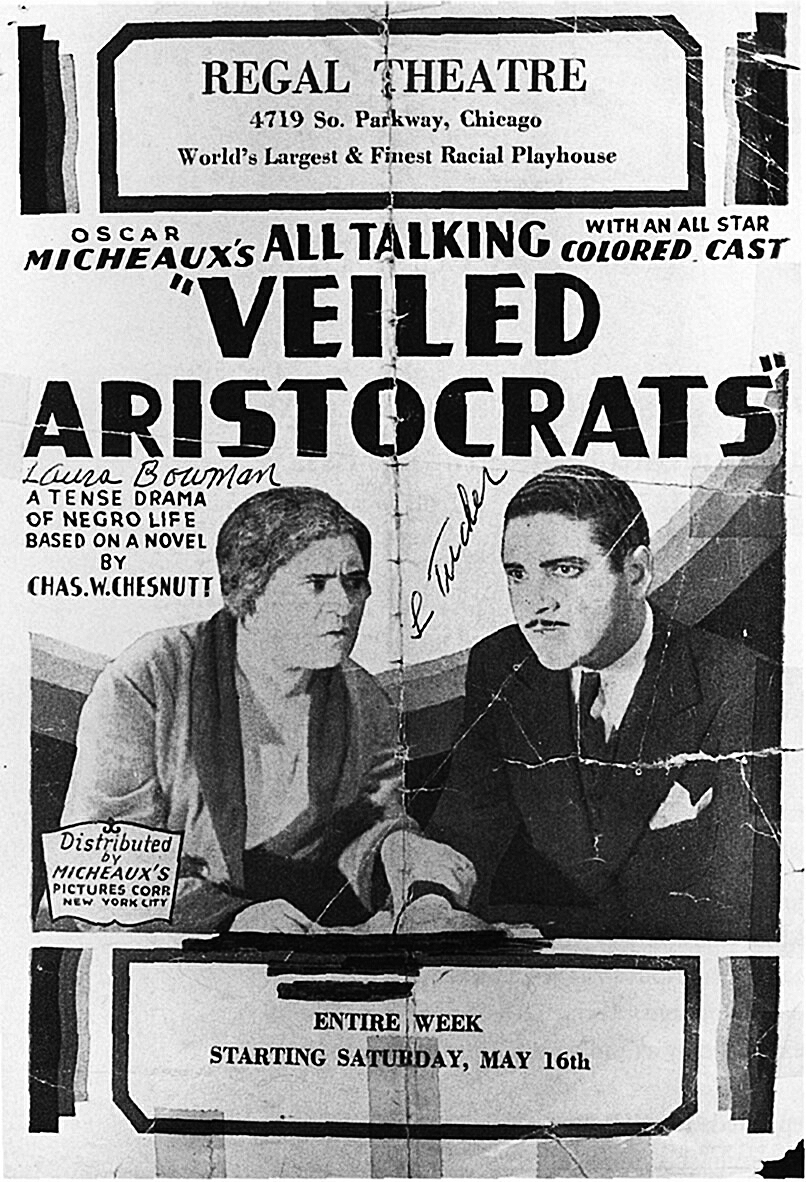Veiled Aristocrats (partially lost Oscar Michaeux film; 1932)
Veiled Aristocrats is a 1932 Pre-Code social-drama film directed by Oscar Micheaux, based on the 1900 novel "The House Behind the Cedar" by Charles W. Chesnutt. Featuring an all-Black cast, this was Micheaux's second all-talking film, following the 1931 drama "The Exile". The film deals with the themes of "passing" by mixed-race African Americans to avoid discrimination & colorism present within the black Community[1].
Plot Summary
John Walden, a light-skinned African-American lawyer returns back to his family in North Carolina after having left home for 20 years before. He's managed to get his success and attempts to get his sister Rena to do the same. Rena, who is in love with a dark-skinned businessman, Frank Fowler, is convinced by John & their Mother to leave home to live in the city and pass as white as well.
Although Frank puts Rena in an opulent house full of servants (who perform a variety of musical numbers in the film) & finds her a white millionaire to marry, Rena's increasing identity crisis causes her to breakdown, resulting in a speech where she declares she is a "negress" and "tired of being a liar and a cheat". She runs away and the film ends with Frank & Rena eloping[2].
Production
Veiled Aristocrats was Micheaux's second adaptation of the 1900 novel "The House Behind the Cedars", the first being the now lost 1927 silent film of the same name[3]. The 1932 film shares its title with a 1923 novel by Gertrude Sanborn, which deals with similar themes to the film[4]. The film's ending is changed from the original novel's with the original book ending in Rena's death. In the film however, she lives and marries Frank.
The mansion set of the film was not a set, but actually being Micheaux's mother-in-law's home in Monte Clair, New Jersey[5]. The rest of the scenes outside of the mansion were most likely filmed in a studio in Fort Lee, New Jersey[6].
Preservation Status
Most of the complete print of the film runs 48 minutes, released by Kino Lorber on their "Pioneers of African American Cinema" Blu-ray collection[7]. A trailer & fragments of two reels are also held at the Library of Congress Film Archive[8].
Gallery
References
- ↑ Page 1 of Time Magazine article about the film. Retrieved 20 Apr '24
- ↑ Page 2 of Time Magazine article about the film. Retrieved 20 Apr '24
- ↑ 1924' "Housed Behind The Cedars" Retrieved 20 April '24
- ↑ Google books page on the 1923 novel by Gertrude Sanborn.
- ↑ AFI article on the film Retrieved 20 April '24
- ↑ Archived list of film studios set in Fort Lee. Retrieved 20 April '24
- ↑ Product page of "Pioneers of African American cinema DVD Retrieved 20 Apr '24
- ↑ IMDb trivia page of the film. Retrieved 20 Apr '24
